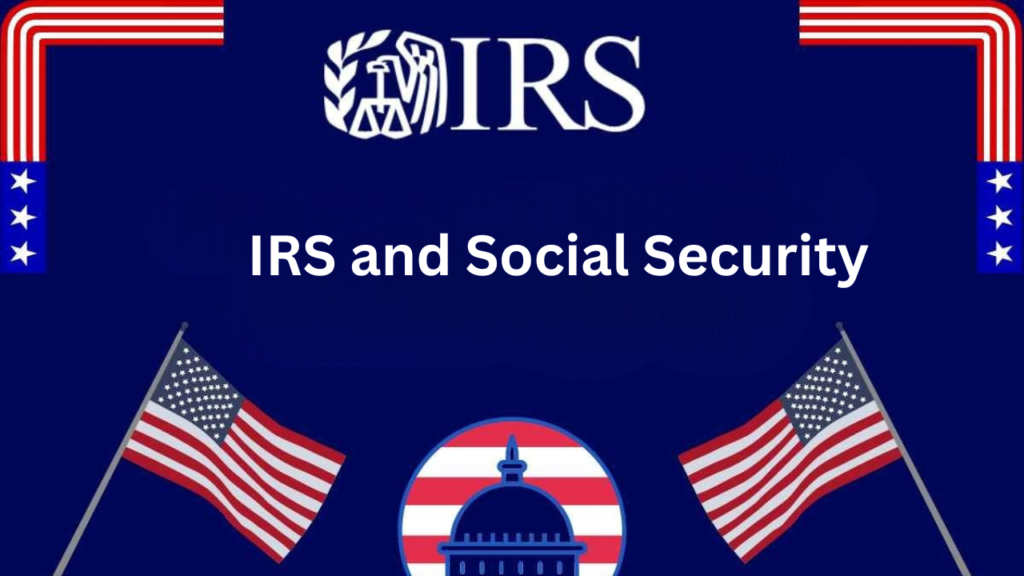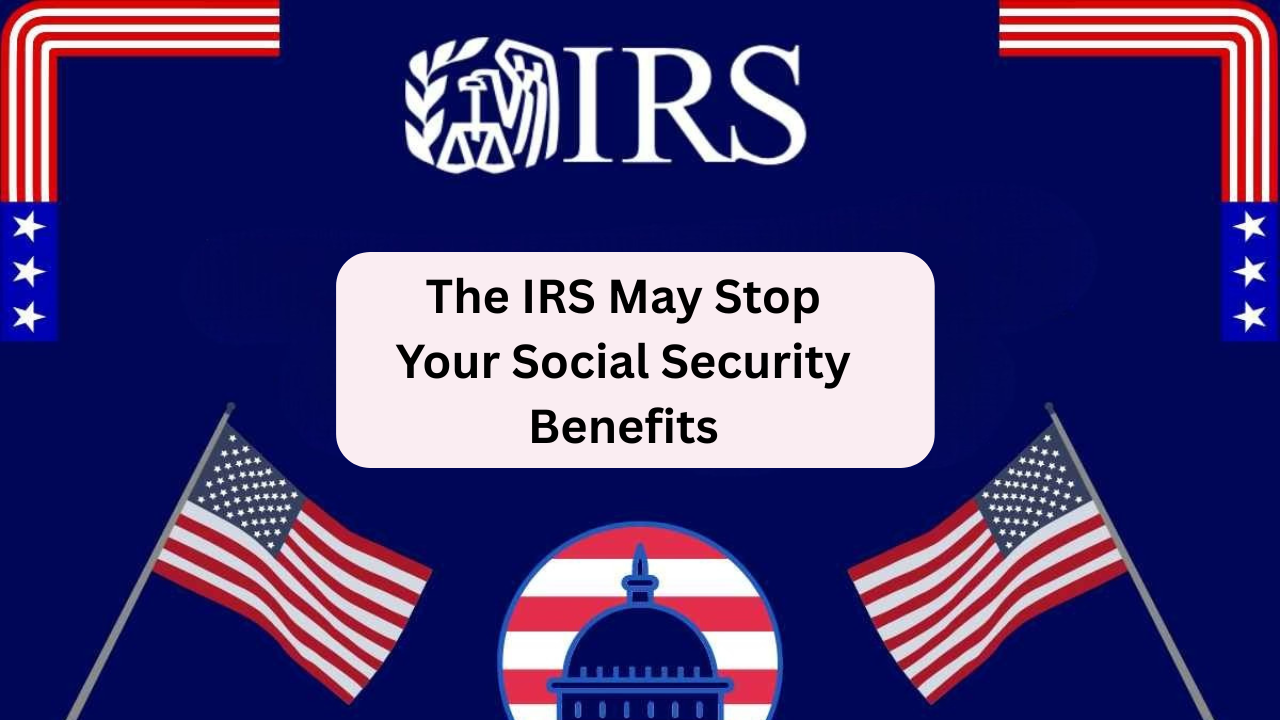If you’re receiving Social Security blessings, you may not realise that there are sure moves or inactions that can result in your benefits being cut off. One of the most commonplace and preventable motives is failing to stay compliant with the IRS. This is a extreme problem that can have an effect on your price range and your capacity to access the Social Security blessings you depend upon.
Understanding why and how the IRS should potentially reduce off your Social Security, and what you can do to prevent this, is important. This article will offer a clear, smooth-to-apprehend manual to navigating this important trouble, with sensible recommendation on how to defend your Social Security blessings.
IRS Will Cut Off Your Social Security If You Don’t Do This
| Key Topic | Details |
|---|---|
| IRS and Social Security | If you owe back taxes or have unresolved issues with the IRS, your Social Security benefits may be withheld or garnished. |
| Reasons for Social Security Cuts | Failure to file taxes, unpaid tax debts, or liens against your Social Security. |
| Steps to Prevent Cuts | Pay off back taxes, keep tax records updated, and respond promptly to IRS notices. |
It’s crucial to live on top of your taxes and remedy any issues with the IRS to avoid jeopardizing your Social Security benefits. If you’re dealing with potential garnishment or suspension of benefits, it’s now not too overdue to behave. By information why the IRS can also take action and following the steps outlined in this manual, you could guard your benefits and keep away from severe monetary difficulty. If you need assist, don’t hesitate to consult a professional. Staying proactive and addressing any IRS problems head-on is the key to ensuring your Social Security blessings stay intact.
Understanding the IRS and Social Security

For many Americans, Social Security is a vital supply of profits, particularly for retirees, people with disabilities, or survivors of deceased employees. However, Social Security blessings are not guaranteed without retaining positive obligations, such as paying taxes.
One of the most not unusual however frequently unnoticed reasons Social Security benefits can be interrupted is due to troubles with the IRS. The IRS, or Internal Revenue Service, is the U.S. Authorities business enterprise liable for amassing taxes. If you owe taxes and fail to pay, the IRS has the authority to do so against your benefits. This could result in your Social Security blessings being decreased or even suspended.
So, how exactly should the IRS cut off your Social Security, and what can you do to keep away from it?
Why Can the IRS Cut Off My Social Security Benefits?
The IRS can cut off or garnish your Social Security benefits for a lot of motives, but it’s most often because of unpaid taxes or unresolved tax issues. Here are the main eventualities where the IRS might take such motion:
1. Unpaid Back Taxes
If you owe the IRS cash and haven’t paid it, the IRS can vicinity a levy on your Social Security advantages. A levy is a prison seizure of your private home to meet a debt, and this includes garnishing a part of your Social Security payments.
2. Failure to File Taxes
Even if you don’t owe taxes, failing to file your tax returns can create extreme problems. The IRS calls for you to record taxes in case your profits exceeds a positive threshold, even if you are retired or receiving Social Security. Failing to fulfill this requirement can cause consequences and fees, and if left unresolved, may want to result in the suspension of your advantages.
3. Outstanding Tax Liens
A tax lien is a criminal claim on your own home due to unpaid taxes. If the IRS places a lien on your property, including your Social Security blessings, it can have an effect on your capacity to acquire your complete benefits until the debt is settled.
4. Tax Fraud or Evasion

If you are suspected of tax fraud or evasion, the IRS may also look into and withhold Social Security advantages until the situation is resolved. Tax evasion is a extreme crime and may lead to intense outcomes, which includes penalties, interest, and a suspension of benefits.
How Does the IRS Garnish Social Security?
When the IRS takes motion to acquire on a tax debt, it is able to garnish your wages, bank bills, and even your Social Security blessings. Social Security garnishments, but, are challenge to certain barriers.
- For people receiving Social Security blessings, the IRS can garnish up to 15% of the total monthly benefit if you owe back taxes.
- Exemptions: Some human beings can be eligible for exemptions based at the kind of benefits they acquire or if the garnishment would leave them with out sufficient earnings to fulfill basic residing prices.
What Should You Do If the IRS Threatens to Cut Off Your Social Security?
If you locate your self in a situation wherein the IRS is threatening to take action towards your Social Security blessings, the primary issue to do is to live calm. There are steps you may take to resolve the problem and save you the garnishment or suspension of your benefits. Here’s a step-by way of-step manual that will help you navigate the process:
Step-by way of-Step Guide to Prevent IRS Action on Your Social Security
Step 1: Understand Why the IRS Is Taking Action
The first factor to do is to cautiously evaluate any letters or notices from the IRS. These will provide an explanation for the cause for the movement and the steps you want to take to resolve the issue. It may be related to unpaid taxes, an unresolved audit, or failure to file taxes.
Action: Review all IRS correspondence and ensure you recognize the exact trouble. If you’re uncertain, it’s well worth consulting a tax expert.
Step 2: Pay Off Back Taxes
If you owe taxes, paying them off as quickly as feasible can save you in addition action. The IRS often allows for charge plans, which means that you may pay in installments instead of abruptly.
Action: Contact the IRS and inquire about putting in place a fee plan. This let you keep away from garnishment at the same time as you work to clear up the problem.
Step 3: File Your Taxes (If You Haven’t Already)
If you’ve missed submitting your taxes, it’s essential to record as quickly as possible, although you may’t pay the full amount. Not filing your taxes may be worse than owing taxes because the IRS imposes penalties for failing to report.
Action: File your tax returns as quickly as viable. You can document your taxes on-line or thru a tax professional.

Step 4: Request a Levy Release
If the IRS has already issued a levy on your Social Security blessings, you’ll be able to request a launch of the levy. This typically requires you to set up a charge plan or reveal that the garnishment will cause you undue worry.
Action: If you are unable to pay the whole quantity, request a levy release by means of contacting the IRS and offering proof of your monetary worry.
Step 5: Seek Professional Help
If you’re feeling crushed or unsure about a way to manage the scenario, don’t hesitate to attain out to a tax professional. They can help you navigate the complexities of tax laws, negotiate with the IRS on your behalf, and help you create a plan to clear up your issues.
Action: Consider working with a tax consultant or accountant who permit you to recognize your options and prevent the IRS from taking motion towards your Social Security advantages.
Overview of Social Security Benefits and Taxes
Social Security is designed to provide a safety net for eligible individuals, consisting of retirees, human beings with disabilities, and survivors of deceased workers. These blessings are funded through payroll taxes which are accrued by using the IRS and the Social Security Administration (SSA).
Most human beings contribute to Social Security during their careers via the FICA (Federal Insurance Contributions Act) tax, which is routinely deducted from your paycheck. Once you end up eligible, those advantages can serve as a primary source of profits.
However, failure to comply with tax laws could placed your advantages at chance. The IRS makes use of several techniques to music unpaid taxes, and once they notice non-price, they have the authority to do so in opposition to your Social Security advantages.

Types of Social Security Benefits That Can Be Affected
Social Security isn’t simply restricted to retirement advantages. Different programs, consisting of Disability Insurance and Supplemental Security Income (SSI), are also impacted by means of IRS tax problems.
- Retirement Benefits – If you have did not pay taxes or file returns, your retirement advantages can be garnished.
- Disability Benefits – Those who’re disabled and receiving benefits can also face garnishment if they owe lower back taxes.
- SSI (Supplemental Security Income) – For low-earnings people, SSI advantages may be subject to IRS garnishment if there are awesome tax troubles.
What Happens After Garnishment?
If the IRS starts garnishing your Social Security blessings, the procedure can preserve until your tax debt is paid off. The IRS commonly garnishes 15% of your month-to-month benefit. This garnishment can closing until the debt is fully paid.
If you believe the garnishment is causing undue trouble, you could request a evaluate. The IRS can also alter the amount or launch the garnishment primarily based for your monetary state of affairs.
Resources for Seniors and Low-Income Individuals
For the ones suffering financially, specially seniors or people receiving low blessings, there are additional sources to be had to assist manage taxes and avoid garnishment. The IRS gives numerous programs that could help lessen the amount owed or create potential price plans. Additionally, businesses like AARP and the National Council on Aging provide financial recommendation and aid for seniors in need.
FAQs:
1. Can the IRS take all of my Social Security benefits?
No, the IRS cannot take all of your Social Security benefits. Federal law limits the amount that can be garnished to 15% of your monthly benefit. However, if you have other sources of income, those may also be garnished to satisfy the debt.
2. How can I prevent the IRS from garnishing my Social Security?
To prevent garnishment, make sure you stay current on your taxes. If you owe money, set up a payment plan with the IRS and file your taxes on time. If you can’t pay your taxes, request a payment plan or levy release.
3. What should I do if I can’t afford to pay the IRS?
If you can’t afford to pay the full amount, you may be eligible for a payment plan or an offer in compromise, where the IRS agrees to settle for less than what you owe. Consult with a tax professional to explore these options.


